

The What, Why & How of COVID-19 & Novel CORONA Virus
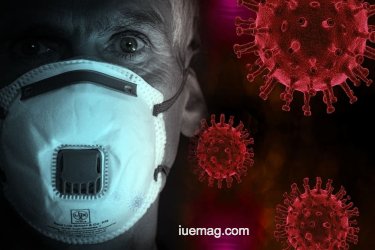
This article is a well-researched piece brought together to give every reader the clarity on everything there is, currently, to COVID-19, in as much depth as possible. More than being a technical presentation on what the novel corona virus is, this piece is all about bringing the much-needed info at hand for every one of us to deal with a COVID-19 patient within a family or understand our own position better. There's no claim here that this stands as the final verdict on COVID-19 but this certainly brings together what whole of Internet has put out in bits and pieces there. The bibliography has been added at the end of this piece.
If you are from Earth, be it from any corner of this planet, it is less likely that you haven’t heard about COVID-19 or the Corona Virus by now.
The COVID-19 outbreak has not only crippled the economies of the world but currently posing as a threat to humanity as a whole given the spread of the challenges created by it are left to be dealt by us, the humans. To losses of the lives, to the businesses and economies and the various impacts on our lives is way beyond the scope of this article.
If you are from Earth, be it from any corner of this planet, it is less likely that you haven’t heard about COVID-19 or the Corona Virus by now.
The COVID-19 outbreak has not only crippled the economies of the world but currently posing as a threat to humanity as a whole given the spread of the challenges created by it are left to be dealt by us, the humans. To losses of the lives, to the businesses and economies and the various impacts on our lives is way beyond the scope of this article.
But what is COVID and what is this all about? Who can get infected?
Can you get infected too? What happens next in case you get infected?
Keep Patience and Read on!
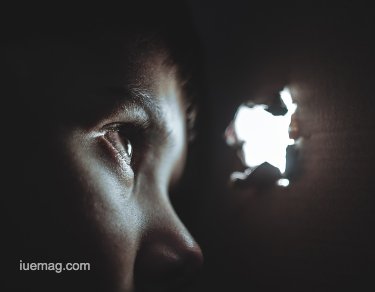 We, at iU, have researched the details for you and brought together most of what information is available on the world of the internet, in one place. Most likely, many of the questions that you might have will get answered. If you do have more questions, you could reach out to us and share your question in the comments below and we shall give our best to answer the question at the earliest. Let’s get started!
We, at iU, have researched the details for you and brought together most of what information is available on the world of the internet, in one place. Most likely, many of the questions that you might have will get answered. If you do have more questions, you could reach out to us and share your question in the comments below and we shall give our best to answer the question at the earliest. Let’s get started!What is COVID-19?
As per CNS drug delivery agents, COVID-19 is from the family of 7 Corona Viruses out of 100s of viruses that have been discovered to date, that infect humans. One of those virus attacks had happened in China in 2003 called SARS CoV and the other one in Saudi Arabia in 2012 called MERS. SARS (Severe Acute Respiratory Syndrome) and MERS (Middle-East Respiratory syndrome) were among the initial ones to be discovered. The new member in the family that has been discovered now is SARS CoV2 or also known as COVID-19 (Corona-Virus-Disease-2019).
Why the name - Corona Virus?
These viruses have Crown-like spikes on the surface of it. These spikes are the Protein spikes called S-Proteins. The name is derived from the Latin word of Crown - Corona.
Where and how did it originate?
While there are several kinds of research in progress to estimate the place of the origination of this virus, according to some theories, it originated from Hubei Province in Wuhan, a city of China. According to Wikipedia, the outbreak was first recorded in Wuhan in December of 2019.How does the virus enter the body?
From the information that we have so far, there are generally 2 ways through which the Covid-19 Virus can enter your body:Direct Transmission: When we are around an infected person and that person coughs or sneezes or even talks to us, the aerosol droplets containing the virus gets released and land directly on our face and enter through the eyes, nose or mouth.
Indirect Transmission: Indirect transmission happens in the below ways:
- When we have inhaled the air that contained the droplets with the virus. It was very recent that WHO admitted that the spread of COVID-19 can be airborne too.
- We touch the surface that had Mr.Covid-19 sticking on to it and then we touch the eyes, nose, or mouth thereby giving entry to the virus into our body.
How long does it stay on different surfaces and in the Air?
There are many studies done and are ongoing about the duration for which the COVID virus can last on different surfaces and in the Air. Below is the brief from the Healthline article that summarizes findings from the studies done by the New England Journal of Medicine (NEJM) and the study by The Lancet:Plastic: 3-7 Days
Stainless Steel: 3-7 Days
Copper: Up to 4 hours
Paper: Up to 4 Days
Glass: Up to 4 Days
Cardboard: Up to 24 Hours
Wood: Up to 2 Days
Air: Up to 3 Hours
Additional Resource: Fighting Indoor Air Pollution & Saving On Home Insurance At The Same Time
Here are some examples of the high-touch surfaces in our house that need to be cleaned regularly:(Source: Healthline)
- Doorknobs
- Handles on appliances, like the oven and refrigerator
- Light switches
- Faucets and Sinks
- Toilets
- Tables and Desks
- Countertops
- Staircase railings
- Computer keyboards and Computer mouse
- Handheld Electronics, such as phones, tablets, and video game controllers
- Car Steering/Bike Handles
It is still unknown if the COVID Virus can survive in Water.
If you are from a region or a locality wherein the spread is high, it is advisable that you follow the safety and the precautionary measures suggested by the health authorities of your region and by the WHO.

If you are in your 20s or 30s, the chances of you contracting it or it becoming severe even if you do are quite lesser. According to the studies, the risk of severe illness from COVID-19 increases with age. Hence, the people aged above 65 years are at a higher risk compared to the younger ones.
The immune system of the people in their 20s or 30s or even 40s is much stronger than the elderly people and hence, the immune system is fast to respond and the symptoms might not even show up to become noticeable. But the fact that the virus is inside the body, can’t be denied. Hence, these set of people are termed as ‘Asymptomatic Carrier’ of COVID.
According to some initial studies, the ‘Asymptomatic Carriers’ can transmit the virus, the risk is not zero. But, it might be lesser compared to the transmission by the ‘Symptomatic Carriers’ (the people who have noticeable symptoms of COVID-19)
Here are some examples of the high-touch surfaces in our house that need to be cleaned regularly:(Source: Healthline)
- Doorknobs
- Handles on appliances, like the oven and refrigerator
- Light switches
- Faucets and Sinks
- Toilets
- Tables and Desks
- Countertops
- Staircase railings
- Computer keyboards and Computer mouse
- Handheld Electronics, such as phones, tablets, and video game controllers
- Car Steering/Bike Handles
Food & Water:
As per the instructions of the CDC, the Virus survives poorly on the Food Products and packaging. But, as a precaution, it is important to wash hands after touching the food items. Also, it is advised to wash the fruits and vegetables thoroughly with clean water especially if you want to eat them raw.It is still unknown if the COVID Virus can survive in Water.
Are you at risk of contracting the Virus?
Well, we all are!If you are from a region or a locality wherein the spread is high, it is advisable that you follow the safety and the precautionary measures suggested by the health authorities of your region and by the WHO.

If you are in your 20s or 30s, the chances of you contracting it or it becoming severe even if you do are quite lesser. According to the studies, the risk of severe illness from COVID-19 increases with age. Hence, the people aged above 65 years are at a higher risk compared to the younger ones.
The immune system of the people in their 20s or 30s or even 40s is much stronger than the elderly people and hence, the immune system is fast to respond and the symptoms might not even show up to become noticeable. But the fact that the virus is inside the body, can’t be denied. Hence, these set of people are termed as ‘Asymptomatic Carrier’ of COVID.
Can you transmit the virus even if you are an Asymptomatic Carrier?
Currently, several debates are going on in this aspect and it is not yet clear if ‘Asymptomatic Carrier’ poses an equal risk of transmission compared to a ‘Symptomatic Carrier’. The information available in this regard available is still limited and the scientists are trying their best to research this.According to some initial studies, the ‘Asymptomatic Carriers’ can transmit the virus, the risk is not zero. But, it might be lesser compared to the transmission by the ‘Symptomatic Carriers’ (the people who have noticeable symptoms of COVID-19)
What are the precautions to be taken?
According to the guidelines of CDC, the below are how you could prevent yourself and others from getting infected:1. Wash hands regularly:
It is important to wash hands immediately after we have been in a public place. Wash your hands for at least 20 seconds; cover all the sides of your hands including the space between the fingers and nails. Avoid touching your eyes, nose, and mouth with unwashed hands.
Soap and Water are more effective in removing the virus from our hands than the hand sanitizers. In the case of unavailability of Soap and Water, hand sanitizers can certainly do the job but make sure to rub the hands until they are dry.
But make this a rule of thumb to maintain a 6-feet distance from any person you are communicating to, remember that some people might be ‘Asymptomatic Carriers’ of the virus and you might not want to contract it.

Also, you could stop the spread to others in case you are infected even if you don’t feel sick.
But the masks are not advisable in the following cases:
- For children below the 2-years of age.
- If there is someone who has trouble breathing or is unconscious
- If someone is incapacitated (physically challenged) or unable to remove the mask without assistance
A Mask, however, should not be considered an alternative for the Social Distancing.
- For the worst case, in case you don’t have Tissue paper handy, cover your mouth with your elbow and cough/sneeze inside it so that it doesn’t spill out.
- Wash your hands immediately after Coughing or Sneezing
- Fold the tissue paper properly and dispose of it in the trash after using it.
For more details on how could you clean and disinfect various surfaces, the details can be followed in the guidelines of CDC here.
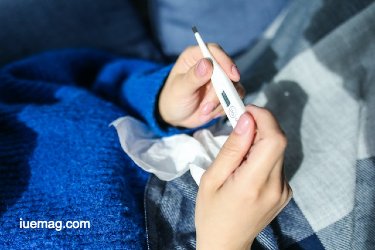
- Fever
- Dry Cough
- Tiredness
- Aches and Pains
- Sore throat
- Headache
- Loss of taste and/or smell
- Diarrhea
- Conjunctivitis
- A Rash on skin or discoloration of fingers and toes
- Shortness of breath or difficulty in breathing
- Chest Pain or Pressure
- Loss of Speech or movement
Apart from the above symptoms suggested by WHO, CDC suggests additional symptoms as below:
- Fatigue
- Runny nose
- Nausea or vomiting
- Muscle pain
- Chills
- Inability to wake or stay awake
- Bluish Lips or Face
It might take anywhere between 2-14 days (after you have gotten exposed to the virus) for the symptoms to appear and become noticeable.
Also, this is not the final list of Symptoms, the list gets updated regularly on the basis of various findings.
What to do if you have Covid symptoms?
According to the guidelines of CDC, in case if you are sick, follow the below-mentioned steps:
First and foremost, don’t panic. You might get yourself in trouble and get others around you tensed.
Avoid going out of your home if you feel the symptoms. You might put all others around you at risk by doing so. Avoiding visiting public places and go out of your home only if for medical care.
Self-Isolate yourself in your home. It means
- Staying in a specific room and not coming out as much as possible
- Using a separate restroom if possible
- Do not share the dishes, drinking glasses, cups, and other eating utensils and clean them by yourself using soap and water.
- Sanitizing the high-touch surfaces in the room regularly and telling the other family members to do the same for the other surfaces in your home.
- Stay away from everyone including your Pets (We know it’s difficult but still, it is for the betterment of yourself and others in your home)
- Drink enough water and stay hydrated.
- Eat healthy food that can help the body in fighting the infection
- Get enough rest. Remember, that we need to take rest to allow our body to fight the infection. Avoid a lot of physical activities.
- Take the medicines suggested by the doctor
Get in touch with your doctor or any medical professionals who have been assigned in your locality by the local health department. Explain to them the symptoms you are facing and follow their guidance for the measures to be taken including the Tests or the medicines to be taken.
Even to travel to the hospital, avoid the modes of Public transportation like Buses, Ride-sharing, and Taxis.
Monitor your Symptoms regularly. If over a period of time, the intensity of the symptoms reduces, that’s Great News! But, in case, you feel that the symptoms are getting severe, communicate with your doctor or the health department immediately.
Following some of these measures that have been discussed earlier in the article:
- Washing hands regularly
- Avoid touching your eyes, nose, and mouth without washing hands
- Cover your mouth and nose using a tissue when you cough or sneeze. Wash your hands with Soap and Water immediately after that
- Wear a Mask over your Nose and Mouth whenever you are around people
If the symptoms are severe, you might be advised to get hospitalized. To understand what happens when you get hospitalized, it is important to understand what does the COVID-19 Virus does in our body.
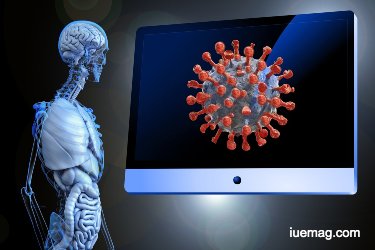
Corona Virus needs a living cell to multiply itself; hence it attaches itself to a cell in our body using the spike on its surface. It attaches the spike to the receptor called the Ace-2 receptor of one of our body cells. This attachment of the spike to the receptor acts like a lock and a key. Either the cell pulls it inside or it attaches to the cell membrane and in both cases, releases the genetic material stored in it inside the cell.
The genetic material released inside the body cell literally hijacks our body cell and uses it to create millions of copies of itself. Once, the millions of copies are created, it spreads to perform the same in other cells.
To understand this better, you could imagine a Sci-Fi movie, in which a Robot enters a fully functional laboratory, hijacks it, and uses the resources available there to create more copies of it.
Heard of the fact that the symptoms of COVID show up between 2nd day to 14th day? This is what it is. The interval between the COVID Virus entering the body and multiplying into millions of copies of itself to get to the stage the symptoms show up is called the Incubation Period.
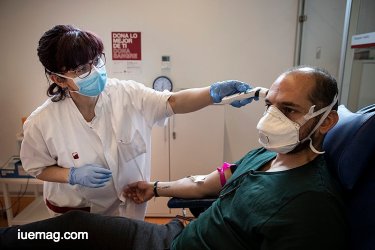
If your symptoms get severe, you will be advised to be hospitalized.
Once you are hospitalized, the first and foremost step is to test and figure if you are suffering from COVID-19 or not. To do this, you will be tested for Corona Virus. Generally, the type of test that is used for testing globally is called Genetic Test, also known as RT-PCR Test. But below are the type of test that exists:
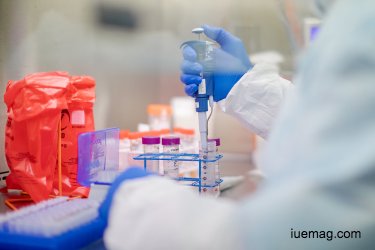
The Genetic Test also is known as RT-PCR test is among the widely used tests globally. In this test, your nasal swab or a throat swab is collected and tested for the presence of the Virus in your body. The results might take anywhere between a few hours or a few days depending on various factors including the region, availability of tests, the no. of samples already in queue to be tested, no. of testing facilities available, etc.
2. Antibody Test:
A test that has been used for the testing for the Virus through the presence of Antibodies in your bodies is called the ‘Antibody test’. For this test, instead of nasal/throat swab, your blood sample will be collected and tested for the presence of Antibodies. The results generally arrive within a few minutes as it is a low-cost and no-machinery requirement testing method. Although it is a cost-effective method, not many countries are using this method of testing now owing to its unreliable results.
3. Antigen Test:
This form of testing includes collecting a nasal/throat swab and checking for the presence of Antigens in it. Unlike the RT-PCR test that detects the presence of the genetic material, the Antigen Tests detect the presence of the proteins such as spike proteins that are on the surface of the COVID-19 Virus. Though the results of this are almost immediate, this test is not being used owing to the unavailability of a reliable one.
The availability of all or some of the testing methods mentioned above might vary depending on your region. Kindly contact the health department for more information on it.
If you have been asked to hospitalize but the symptoms are mild, you will be placed in the COVID Care unit wherein you will be:
- Administered oxygen through a mask or tubes into your nostril to help your body and the lungs
- Scanned to determine the level of the infection
- Might be administered antibiotics to prevent any bacterial infection in the lungs
- Kept a watch over for the development of any further symptoms.
Most of the people recover and are discharged from the hospital.
According to WebMD, 15% of the cases get severe which means they need to be treated at the hospital and 5% of the cases get critical infections and need to be on a ventilator.
If the oxygen level in your blood drops and symptoms prevail and increase after the initial care, you will be taken to the next step called High-Flow Nasal Cannula through which supplies 100% humidified and heated oxygen at the rate of 60 liters per minute.
If the therapy through High-Flow Nasal Cannula doesn’t work out, the last step would be to put the patient onto the Mechanical Ventilator. It is a machine that performs the process of supplying oxygen and removing carbon dioxide from the body. They are termed as lungs outside the body.
Pneumonia, as you might know, is a type of lung infection wherein there is an inflammation in the air sacs of our lungs. It happens when the immune system responds in a way it was not supposed to.
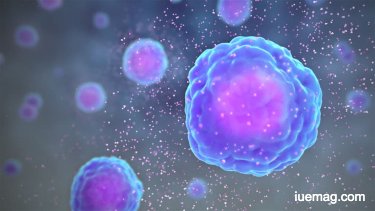
As per the modus operandi, the way the immune system functions in our body is that the cell that detects a foreign material in it destroys itself as a preventive measure. Sounds like a sci-fi movie? It does!
The response of the cell comes from a signaling substance ‘Cytokines’ that gets released from the immune cells. When a lot of cells perform this action at the same time, that’s where the problem starts. Amongst the medical professionals, it is popularly called ‘Cytokines Storm’. When so many cells in the lungs perform this action, the lining that covers the Alveoli gets broken (Gosh! feel like you need to brush up with your 10th-grade Biology? We really need to!) and it gets filled with fluid and it can release very less Oxygen leaving you gasping for the breath.
If this wasn’t enough, Pneumonia can bring along another disease called Acute Respiratory Distress Syndrome (ARDS) making it even harder to recover. If your body can fight this out, Congratulations! You might be in the hospital until you are safe to leave and then discharged.
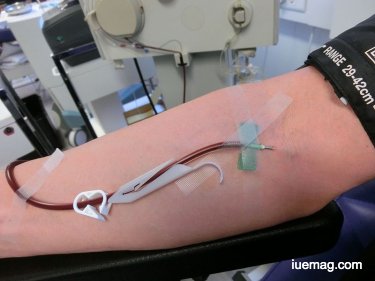 Blood Plasma has been in use for a long time as the treatment for Polio, SARS, and even during the outbreak of Ebola.
Blood Plasma has been in use for a long time as the treatment for Polio, SARS, and even during the outbreak of Ebola.
Our blood contains Red Blood Cells, White Blood Cells, and the Platelets which form 45% of it while the rest is a yellow liquid that contains Protein (some of which are Antibodies) and other things that include water and dissolved salts.
When an infected person has gotten cured, the blood contains the antibodies that his/her body had produced to fight against the corona virus and help the patient cure; when that blood plasma is collected and inserted in the body of a COVID-19 patient, it helps the patient’s body in fighting the virus.
Remdesivir is an antiviral drug that has received approval from the CDC. It was also one of the drugs during the Ebola outbreak. It works in a way that it inhibits the ability of the virus to reproduce itself.
Experts suggest that it works better when it is administered in the early stages of the illness. Also, initial studies suggest that it reduces the recovery time from 15 days to 11 days.
The studies are still underway to figure out more treatment methods to treat COVID-19 Patients.
There is very little data available with the scientists to determine if Hydroxychloroquine (HCQ) which is generally used to treat Malaria, can be used for the treatment for COVID-19 too.
In fact, according to the statement by WHO on June 19th 2020, they have stopped the Solidarity Trial arm of HCQ with effect from June 17th as their data showed no reductions in the mortality of hospitalized patients who were administered the drug.
Though the symptoms related to COVID-19 and Influenza (Known as ‘Flu’) are similar, there are many differences between COVID and Influenza. Some of the differences are mentioned below:
1. While Flu itself can cause certain complications like Pneumonia in the advanced stages, people infected with COVID-19 might have other complications like Blood clots in Veins and arteries of lungs, heart, legs, or even brain.
2. We are yet to have an approved vaccine for COVID-19 as yet.
3. COVID-19 patients might experience additional symptoms like loss of taste and/or smell.
4. The symptoms of COVID-19 take anywhere between 2-14 days to appear, while Flu symptoms appear in 1-4 days.
5. The contagion risk of COVID is higher than that of the Flu.

Being able to connect to your loved one who has been hospitalized for COVID-19 solely depends on the decision of the Authorities in your region. Some of the hospitals are taking additional care by facilitating virtual connections of the patients with their family members. In some regions, the Authorities have allowed the patient to use their mobiles. India, for example, has recently allowed the COVID-19 patients to use the smartphones and tablet devices to be able to stay in touch with their family members for psychological support. How much of this is implementable? We will have to wait and see!
The discharge policies from the hospitals for the number of days of hospitalization, whether or not the testing is required before discharge might vary according to your region. Kindly connect to your local health department for this information. But WHO recently has updated the criteria set out for the discharge:
When should you wash your hands?
According to the CDC, below-mentioned are the scenarios in which you should wash your hands:- Before eating or preparing food
- Before touching your face
- After using the restroom
- After leaving a public place
- After blowing your nose, coughing, or sneezing
- After handling your mask
- After changing a diaper
- After caring for someone sick
- After touching animals or pets
Which is better - Soap and Water or Hand Sanitizer?
Based on the observations and studies on this subject, the Soap and Water have been the first choice amongst the medical professionals. If you have read the last sentence of the previous Para carefully, CDC suggests the same too.Soap and Water are more effective in removing the virus from our hands than the hand sanitizers. In the case of unavailability of Soap and Water, hand sanitizers can certainly do the job but make sure to rub the hands until they are dry.
2. Avoiding close contact with people:
Popularly known as Social Distancing, one of the ways to be able to prevent yourself from contracting the virus is to avoid close contact with the people both inside and outside the house. It is best advisable to maintain 6 feet (or 2 meters) distance from the people especially if someone is sick.But make this a rule of thumb to maintain a 6-feet distance from any person you are communicating to, remember that some people might be ‘Asymptomatic Carriers’ of the virus and you might not want to contract it.
What if the other person feels offended with a 6-feet distance?
Given the widespread awareness by the government authorities concerning the Social-Distancing measures, it is less likely someone would feel offended if you do so. But what If they feel offended? The best solution is that we take our health as our priority. The other person should ideally follow the same too, but if they don’t, we need to take care of our health.
3. Wear a Mask:
Though this has been a subject of many debates, according to the suggestions by CDC, wearing a mask when you are in a public setting or around people outside your household can be a preventive measure.Also, you could stop the spread to others in case you are infected even if you don’t feel sick.
But the masks are not advisable in the following cases:
- For children below the 2-years of age.
- If there is someone who has trouble breathing or is unconscious
- If someone is incapacitated (physically challenged) or unable to remove the mask without assistance
A Mask, however, should not be considered an alternative for the Social Distancing.
4. Cover your mouth when Coughing or Sneezing:
You are at a public place or even at your home and you get the sensation of Cough or a Sneeze, make sure to cover your mouth and nose with a Tissue Paper while doing so. Make sure to keep tissue papers handy so that you don’t have to look out for it when you have the sensation (obviously, you might not have time to do so ;)).- For the worst case, in case you don’t have Tissue paper handy, cover your mouth with your elbow and cough/sneeze inside it so that it doesn’t spill out.
- Wash your hands immediately after Coughing or Sneezing
- Fold the tissue paper properly and dispose of it in the trash after using it.
5. Clean and Disinfect:
Make sure to clean and disinfect the surfaces that are frequently touched in day-to-day life. The list of the touch-surfaces has been provided above in this article.For more details on how could you clean and disinfect various surfaces, the details can be followed in the guidelines of CDC here.

6. Daily-monitoring of our health:
It becomes imperative that we stay alert in this phase of the pandemic. Watch out for Fever, shortness of breath, cough, or any of the other symptoms listed below.How do you get to know if you have contracted it?
According to the guidelines of WHO, the following are the symptoms:Common Symptoms:
- Fever
- Dry Cough
- Tiredness
Less common Symptoms:
- Aches and Pains
- Sore throat
- Headache
- Loss of taste and/or smell
- Diarrhea
- Conjunctivitis
- A Rash on skin or discoloration of fingers and toes
Serious Symptoms:
- Shortness of breath or difficulty in breathing
- Chest Pain or Pressure
- Loss of Speech or movement
Other Symptoms:
Apart from the above symptoms suggested by WHO, CDC suggests additional symptoms as below:
- Fatigue
- Runny nose
- Nausea or vomiting
- Muscle pain
- Chills
Emergency Symptoms also include:
- Sudden Confusion: If you are suddenly feeling very confused, you might have to get it checked- Inability to wake or stay awake
- Bluish Lips or Face
It might take anywhere between 2-14 days (after you have gotten exposed to the virus) for the symptoms to appear and become noticeable.
Also, this is not the final list of Symptoms, the list gets updated regularly on the basis of various findings.
What to do if you have Covid symptoms?
According to the guidelines of CDC, in case if you are sick, follow the below-mentioned steps: Don’t Panic:
First and foremost, don’t panic. You might get yourself in trouble and get others around you tensed.
Stay Home:
Avoid going out of your home if you feel the symptoms. You might put all others around you at risk by doing so. Avoiding visiting public places and go out of your home only if for medical care.
Self-Isolate:
Self-Isolate yourself in your home. It means
- Staying in a specific room and not coming out as much as possible
- Using a separate restroom if possible
- Do not share the dishes, drinking glasses, cups, and other eating utensils and clean them by yourself using soap and water.
- Sanitizing the high-touch surfaces in the room regularly and telling the other family members to do the same for the other surfaces in your home.
- Stay away from everyone including your Pets (We know it’s difficult but still, it is for the betterment of yourself and others in your home)
Take care of yourself:
Taking care of yourself in this phase becomes most important. In the case of mild symptoms, with the measures that are suggested by a medical professional, you could get cured. Some of the measures suggested are:- Drink enough water and stay hydrated.
- Eat healthy food that can help the body in fighting the infection
- Get enough rest. Remember, that we need to take rest to allow our body to fight the infection. Avoid a lot of physical activities.
- Take the medicines suggested by the doctor
Communicate with a doctor:
Get in touch with your doctor or any medical professionals who have been assigned in your locality by the local health department. Explain to them the symptoms you are facing and follow their guidance for the measures to be taken including the Tests or the medicines to be taken.
Avoid Public transportation:
Even to travel to the hospital, avoid the modes of Public transportation like Buses, Ride-sharing, and Taxis.
Monitor your Symptoms and keep your doctor updated:
Monitor your Symptoms regularly. If over a period of time, the intensity of the symptoms reduces, that’s Great News! But, in case, you feel that the symptoms are getting severe, communicate with your doctor or the health department immediately.
Other Basic Measures:
Following some of these measures that have been discussed earlier in the article:
- Washing hands regularly
- Avoid touching your eyes, nose, and mouth without washing hands
- Cover your mouth and nose using a tissue when you cough or sneeze. Wash your hands with Soap and Water immediately after that
- Wear a Mask over your Nose and Mouth whenever you are around people
If the symptoms are severe, you might be advised to get hospitalized. To understand what happens when you get hospitalized, it is important to understand what does the COVID-19 Virus does in our body.

What does Corona Virus do once it enters our body?
Now, having understood how does the virus enters the body, let’s get into what does it do once it enters the body. Once the virus has been successful in entering the body, it goes nasal passage to the mucous membrane at the back of the throat or directly to the lungs.Corona Virus needs a living cell to multiply itself; hence it attaches itself to a cell in our body using the spike on its surface. It attaches the spike to the receptor called the Ace-2 receptor of one of our body cells. This attachment of the spike to the receptor acts like a lock and a key. Either the cell pulls it inside or it attaches to the cell membrane and in both cases, releases the genetic material stored in it inside the cell.
The genetic material released inside the body cell literally hijacks our body cell and uses it to create millions of copies of itself. Once, the millions of copies are created, it spreads to perform the same in other cells.
To understand this better, you could imagine a Sci-Fi movie, in which a Robot enters a fully functional laboratory, hijacks it, and uses the resources available there to create more copies of it.
What is the Incubation period?
Heard of the fact that the symptoms of COVID show up between 2nd day to 14th day? This is what it is. The interval between the COVID Virus entering the body and multiplying into millions of copies of itself to get to the stage the symptoms show up is called the Incubation Period.
What happens when you get hospitalized?

If your symptoms get severe, you will be advised to be hospitalized.
Once you are hospitalized, the first and foremost step is to test and figure if you are suffering from COVID-19 or not. To do this, you will be tested for Corona Virus. Generally, the type of test that is used for testing globally is called Genetic Test, also known as RT-PCR Test. But below are the type of test that exists:
Type of Tests:
1. Genetic Tests or RT-PCR:
The Genetic Test also is known as RT-PCR test is among the widely used tests globally. In this test, your nasal swab or a throat swab is collected and tested for the presence of the Virus in your body. The results might take anywhere between a few hours or a few days depending on various factors including the region, availability of tests, the no. of samples already in queue to be tested, no. of testing facilities available, etc.
2. Antibody Test:
A test that has been used for the testing for the Virus through the presence of Antibodies in your bodies is called the ‘Antibody test’. For this test, instead of nasal/throat swab, your blood sample will be collected and tested for the presence of Antibodies. The results generally arrive within a few minutes as it is a low-cost and no-machinery requirement testing method. Although it is a cost-effective method, not many countries are using this method of testing now owing to its unreliable results.
3. Antigen Test:
This form of testing includes collecting a nasal/throat swab and checking for the presence of Antigens in it. Unlike the RT-PCR test that detects the presence of the genetic material, the Antigen Tests detect the presence of the proteins such as spike proteins that are on the surface of the COVID-19 Virus. Though the results of this are almost immediate, this test is not being used owing to the unavailability of a reliable one.
The availability of all or some of the testing methods mentioned above might vary depending on your region. Kindly contact the health department for more information on it.
How are the RT-PCR Tests conducted?
Once your swabs are collected, they are sent to the laboratory for testing wherein they use the Amplification approach to figure out if the genetic material of the virus exists. In the laboratories, using the approach of PCR that has been around since the 1960s, they amplify few pieces of genetic material that might be there in the sample to literally billions and then check for the presence of this Virus.What after Testing?
Once your swab samples are collected, based on the intensity of your symptoms, you might be asked to home quarantine and self-isolate yourself if the symptoms are mild or are asked to be hospitalized if they are severe.If you have been asked to hospitalize but the symptoms are mild, you will be placed in the COVID Care unit wherein you will be:
- Administered oxygen through a mask or tubes into your nostril to help your body and the lungs
- Scanned to determine the level of the infection
- Might be administered antibiotics to prevent any bacterial infection in the lungs
- Kept a watch over for the development of any further symptoms.
Most of the people recover and are discharged from the hospital.
Can it get severe?
According to WebMD, 15% of the cases get severe which means they need to be treated at the hospital and 5% of the cases get critical infections and need to be on a ventilator.
If the oxygen level in your blood drops and symptoms prevail and increase after the initial care, you will be taken to the next step called High-Flow Nasal Cannula through which supplies 100% humidified and heated oxygen at the rate of 60 liters per minute.
If the therapy through High-Flow Nasal Cannula doesn’t work out, the last step would be to put the patient onto the Mechanical Ventilator. It is a machine that performs the process of supplying oxygen and removing carbon dioxide from the body. They are termed as lungs outside the body.
Why and How does it cause Pneumonia?
One of the aspects that makes the condition severe in the case of COVID-19 patients is the development of Pneumonia.Pneumonia, as you might know, is a type of lung infection wherein there is an inflammation in the air sacs of our lungs. It happens when the immune system responds in a way it was not supposed to.

As per the modus operandi, the way the immune system functions in our body is that the cell that detects a foreign material in it destroys itself as a preventive measure. Sounds like a sci-fi movie? It does!
The response of the cell comes from a signaling substance ‘Cytokines’ that gets released from the immune cells. When a lot of cells perform this action at the same time, that’s where the problem starts. Amongst the medical professionals, it is popularly called ‘Cytokines Storm’. When so many cells in the lungs perform this action, the lining that covers the Alveoli gets broken (Gosh! feel like you need to brush up with your 10th-grade Biology? We really need to!) and it gets filled with fluid and it can release very less Oxygen leaving you gasping for the breath.
If this wasn’t enough, Pneumonia can bring along another disease called Acute Respiratory Distress Syndrome (ARDS) making it even harder to recover. If your body can fight this out, Congratulations! You might be in the hospital until you are safe to leave and then discharged.
Other Possible treatments of COVID-19:
According to Harvard Medical School, some of the below-mentioned are the possible treatments that can be used:1. Convalescent Plasma or Blood Plasma:
If approved in your region, you might be administered with the Convalescent Plasma therapy (also known as Blood Plasma Therapy). Under the Convalescent Plasma therapy, the blood plasma collected from the COVID-19 patient who has been cured is collected and inserted in the body of the infected patient. Blood Plasma has been in use for a long time as the treatment for Polio, SARS, and even during the outbreak of Ebola.
Blood Plasma has been in use for a long time as the treatment for Polio, SARS, and even during the outbreak of Ebola.What is Blood Plasma?
Our blood contains Red Blood Cells, White Blood Cells, and the Platelets which form 45% of it while the rest is a yellow liquid that contains Protein (some of which are Antibodies) and other things that include water and dissolved salts.
Why is it done so?
When an infected person has gotten cured, the blood contains the antibodies that his/her body had produced to fight against the corona virus and help the patient cure; when that blood plasma is collected and inserted in the body of a COVID-19 patient, it helps the patient’s body in fighting the virus.
2. Remdesivir:
Remdesivir is an antiviral drug that has received approval from the CDC. It was also one of the drugs during the Ebola outbreak. It works in a way that it inhibits the ability of the virus to reproduce itself.
Experts suggest that it works better when it is administered in the early stages of the illness. Also, initial studies suggest that it reduces the recovery time from 15 days to 11 days.
The studies are still underway to figure out more treatment methods to treat COVID-19 Patients.
Can Hydroxychloroquine treat corona virus?
There is very little data available with the scientists to determine if Hydroxychloroquine (HCQ) which is generally used to treat Malaria, can be used for the treatment for COVID-19 too.
In fact, according to the statement by WHO on June 19th 2020, they have stopped the Solidarity Trial arm of HCQ with effect from June 17th as their data showed no reductions in the mortality of hospitalized patients who were administered the drug.
How is COVID-19 different from Influenza?
Though the symptoms related to COVID-19 and Influenza (Known as ‘Flu’) are similar, there are many differences between COVID and Influenza. Some of the differences are mentioned below:
1. While Flu itself can cause certain complications like Pneumonia in the advanced stages, people infected with COVID-19 might have other complications like Blood clots in Veins and arteries of lungs, heart, legs, or even brain.
2. We are yet to have an approved vaccine for COVID-19 as yet.
3. COVID-19 patients might experience additional symptoms like loss of taste and/or smell.
4. The symptoms of COVID-19 take anywhere between 2-14 days to appear, while Flu symptoms appear in 1-4 days.
5. The contagion risk of COVID is higher than that of the Flu.

Can we be in touch with our family member who has been hospitalized?
Being able to connect to your loved one who has been hospitalized for COVID-19 solely depends on the decision of the Authorities in your region. Some of the hospitals are taking additional care by facilitating virtual connections of the patients with their family members. In some regions, the Authorities have allowed the patient to use their mobiles. India, for example, has recently allowed the COVID-19 patients to use the smartphones and tablet devices to be able to stay in touch with their family members for psychological support. How much of this is implementable? We will have to wait and see!
What is the Discharge Policy?
The discharge policies from the hospitals for the number of days of hospitalization, whether or not the testing is required before discharge might vary according to your region. Kindly connect to your local health department for this information. But WHO recently has updated the criteria set out for the discharge:
- For symptomatic patients: 10 days after symptom onset, plus at least 3 additional days without symptoms (including without fever and without respiratory symptoms)
- For asymptomatic cases: 10 days after positive test for SARS-CoV-2
For example, if a patient had symptoms for two days, then the patient could be released from isolation after 10 days + 3 = 13 days from date of symptom onset; for a patient with symptoms for 14 days, the patient can be discharged (14 days + 3 days =) 17 days after the date of symptom onset; for a patient with symptoms for 30 days, the patient can be discharged (30+3=) 33 days after symptom onset).
Not much information is available on this subject for the precautions that need to be taken after getting discharged from the hospital for COVID-19 infection. But an article suggests the following:
- 14 days of self-isolation
- Wear a face mask mandatorily
- Stay in a well-ventilated room
Unfortunately, not much information is still available around this. According to the brief of WHO, 2 measures are used to calculate the proportion:
Infection Fatality Ratio [IFR]: Estimates this proportion of deaths among all infected individuals
Case Fatality Ratio [CFR]: Estimates this proportion of deaths among identified confirmed cases
Since most of the estimates at this stage of the Pandemic are according to the cases detected through surveillance and calculation using crude methods, the ratio is highly variable from less than 0.1% to over 25%.

Given the intensity of the situations worldwide with the widespread contractions of COVID-19, there are bound to be some myths. We uncover a few of them below as per WHO guidelines and other suggestions:
1. Eating garlic can prevent you from contracting COVID
2. The Corona Virus can’t survive in the summer and hence, the decline in the spread
3. Taking hot water bath to prevent the virus from infecting
4. Drinking or spraying Alcohol can safeguard us from the infection
5. Adding Pepper to our Soup and other means can prevent the infection
6. COVID can spread through houseflies or mosquitoes
7. Spraying or inhaling bleach or any other disinfectant can prevent the infection (It’s very dangerous)
8. COVID-19 virus will stay in the body for a lifetime
9. We are free from the virus if we can hold the breath for 10 seconds and releasing it without feeling any discomfort or coughing. (Can it get more bizarre?)
10. Vaccines against pneumonia can help us protect from COVID-19
11. Only the elderly people can get infected with COVID-19
12. Cats and Dogs can spread COVID-19
It is already a race against the time for the scientists to develop a vaccine within 12-18 months. We need to keep patience and let the scientists do their job.
According to the information available currently through CDC and report by Oie, the World Organization for animal health, several cases of transmission to the pets have been reported worldwide.
Hence, it is suggested that until more information gets available on this, we need to treat our pets like humans and:
- Limit their interactions with the people outside the household
- Stay away from them if you are feeling sick
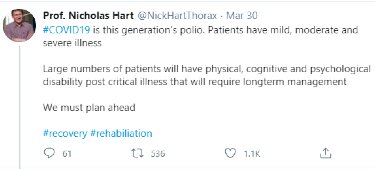
1. A Bloomberg article early in May suggested that the Virus survivors could suffer from severe health effects for years.
2. A study conducted by the researchers at University College London, warns of a potential wave of brain damage as Covid-19 can lead to many neurological problems including Psychosis, Inflammation, Delirium.
3. According to a Healthline article:
- Patients who had suffered from Acute Respiratory Distress Syndrome (ARDS) can develop long-term respiratory illnesses
- Patients who were in ICUs, are more likely to develop Mental Health issues like Post-Trauma Stress Disorder (PTSD), Anxiety, Depression
- Other organs like Heart, Kidneys, Brain can be negatively affected by improper lung functioning.
4. According to an article by Mayo Clinic, Blood clots and Blood Vessel problems might be one of the long-term issues.
5. According to The Lancet, as described by PMC in their article, the patients who were diagnosed with ARDS could potentially be affected by Pulmonary Fibrosis as well.
A large chunk of information available on the internet has been brought together in this piece. We hope that it answers majorly to all your questions that you might have around COVID-19, but if you have any further questions, we would be happy to receive them in the comments below.
What should you do after getting discharged?
Not much information is available on this subject for the precautions that need to be taken after getting discharged from the hospital for COVID-19 infection. But an article suggests the following:
- 14 days of self-isolation
- Wear a face mask mandatorily
- Stay in a well-ventilated room
What are the fatality ratio and the morbidity rate? How dangerous is this Virus?
Unfortunately, not much information is still available around this. According to the brief of WHO, 2 measures are used to calculate the proportion:
Infection Fatality Ratio [IFR]: Estimates this proportion of deaths among all infected individuals
Case Fatality Ratio [CFR]: Estimates this proportion of deaths among identified confirmed cases
Since most of the estimates at this stage of the Pandemic are according to the cases detected through surveillance and calculation using crude methods, the ratio is highly variable from less than 0.1% to over 25%.
Myths surrounding COVID:

Given the intensity of the situations worldwide with the widespread contractions of COVID-19, there are bound to be some myths. We uncover a few of them below as per WHO guidelines and other suggestions:
Myths:
1. Eating garlic can prevent you from contracting COVID
2. The Corona Virus can’t survive in the summer and hence, the decline in the spread
3. Taking hot water bath to prevent the virus from infecting
4. Drinking or spraying Alcohol can safeguard us from the infection
5. Adding Pepper to our Soup and other means can prevent the infection
6. COVID can spread through houseflies or mosquitoes
7. Spraying or inhaling bleach or any other disinfectant can prevent the infection (It’s very dangerous)
8. COVID-19 virus will stay in the body for a lifetime
9. We are free from the virus if we can hold the breath for 10 seconds and releasing it without feeling any discomfort or coughing. (Can it get more bizarre?)
10. Vaccines against pneumonia can help us protect from COVID-19
11. Only the elderly people can get infected with COVID-19
12. Cats and Dogs can spread COVID-19
Is There a Vaccine?
Though there are several vaccines in the clinical trial stage, we are yet to have an approved vaccine for COVID-19. We need to understand that the Vaccine development process takes time. According to the experts, before this, the fastest vaccine took 5 years to be available.It is already a race against the time for the scientists to develop a vaccine within 12-18 months. We need to keep patience and let the scientists do their job.
Can it transmit to our Pet?
According to the information available currently through CDC and report by Oie, the World Organization for animal health, several cases of transmission to the pets have been reported worldwide.
Hence, it is suggested that until more information gets available on this, we need to treat our pets like humans and:
- Limit their interactions with the people outside the household
- Stay away from them if you are feeling sick
Can you contract COVID-19 twice?
Although studies are going on to ascertain if it can recur, some initial reports suggest that the possibilities of being re-infected with the virus can’t be ruled out. Also, many countries like Italy, New Zealand are reporting a second wave of the infection spread after it had simmered down. Hence, we must be alert and stay preventive towards it.Long-term Effects of COVID-19:

1. A Bloomberg article early in May suggested that the Virus survivors could suffer from severe health effects for years.
2. A study conducted by the researchers at University College London, warns of a potential wave of brain damage as Covid-19 can lead to many neurological problems including Psychosis, Inflammation, Delirium.
3. According to a Healthline article:
- Patients who had suffered from Acute Respiratory Distress Syndrome (ARDS) can develop long-term respiratory illnesses
- Patients who were in ICUs, are more likely to develop Mental Health issues like Post-Trauma Stress Disorder (PTSD), Anxiety, Depression
- Other organs like Heart, Kidneys, Brain can be negatively affected by improper lung functioning.
4. According to an article by Mayo Clinic, Blood clots and Blood Vessel problems might be one of the long-term issues.
5. According to The Lancet, as described by PMC in their article, the patients who were diagnosed with ARDS could potentially be affected by Pulmonary Fibrosis as well.
A large chunk of information available on the internet has been brought together in this piece. We hope that it answers majorly to all your questions that you might have around COVID-19, but if you have any further questions, we would be happy to receive them in the comments below.
Statistics:
At the time of this article, globally there are 23,586,645 Corona Virus-infected cases. Out of which 16,085,961 are fortunate to have been recovered and unfortunately 812,537 have lost their lives. The count of Active cases currently is 6,688,147 out of which around 1% of those patients are critical. Covid-19 has affected 213 Countries and Territories and 2 International conveyances at the time of this article. (Source: https://www.worldometers.info/corona virus)
Top 10 Countries by the count of the cases:
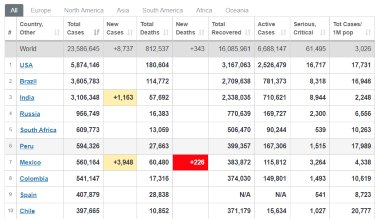
Though the countries have been taking the possible and required measures since the onset of this pandemic and there have been several crucial decisions taken over the entire timeline, the world at large still faces a huge threat from this virus. The below is the list of the Top 10 Nations that have been worst affected by this virus in the terms of the number of infected cases in those regions. The USA is on the top of the chart with 5,874,146 Cases followed by Brazil with 3,605,783 cases and India with 3,106,348 cases to this date.
Shocked? We all are!
It isn’t a movie like Contagion going on here. IT’s a REALITY!
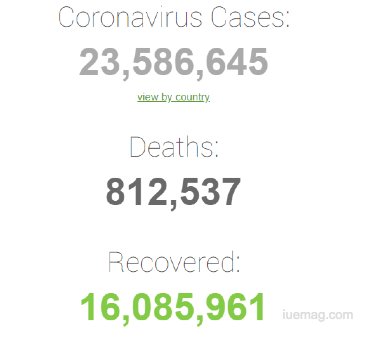
We aren’t used to this kind of World before. We aren’t used to the ever-lasting Fear and anxiety around us that exists today.
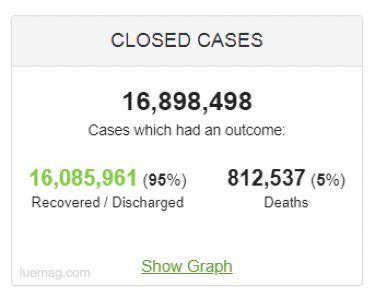
We surely miss the world that existed before this ‘Pandemic Era’ but none of it is the same anymore. This phase has pushed us and the entire human generation to a ‘New Normal’. It’s the ‘New Normal’ we live in today and will continue to do so. There are just too many things that have changed in our lives and the world around us that it is nearly impossible to get things back to what they were. Accepting the present as ‘Reality’ is the best path forward for our lives.
References:
Corona Virus Statistics
The corona virus Explained & What You Should Do
DOCTOR EXPLAINS COVID-19 (corona virus)
How COVID-19 Affects the Body
What Happens If You Get a Severe Case of COVID-19?
COVID-19 Animation: What Happens If You Get corona virus?
What is a corona virus? - Elizabeth Cox
Which is better: Soap or hand sanitizer? - Alex Rosenthal and Pall Thordarson
Wikipedia
Inside the Global Quest to Trace the Origins of COVID-19—and Predict Where It Will
Where Did COVID-19 Really Come From?
Novel corona virus: Your questions, answered
Soap vs. Hand Sanitizer
Hand Sanitizer vs. Handwashing: Which Is Best for Preventing the Spread of Germs?
Soap or sanitiser? Which works better?
Hand sanitiser or soap: making an informed choice for COVID-19
There's a Good Chance You're Approaching This Hand Sanitizer Thing All Wrong
When & How to Use Hand Sanitizer
Cleaning Your Home
What is the difference between Influenza (Flu) and COVID-19?
What to Do If You Are Sick
Symptoms
What should you do if you start to develop COVID-19 symptoms?
Got COVID-19 Symptoms? What Should You Do?
corona virus (COVID-19): What Do I Do If I Feel Sick?
Symptoms of corona virus Disease 2019
corona virus and Pneumonia
corona virus COMPLICATIONS: HOW DOES COVID 19 AFFECT YOUR BODY?
What is the relationship between pneumonia and COVID-19?
corona virus disease (COVID-19) advice for the public: Mythbusters
What to Expect if You Are Hospitalized With COVID-19
You Have corona virus- Now What Happens
What to expect if someone you know is admitted to hospital with COVID-19
COVID-19: What are the different types of tests?
High Flow Nasal Cannula
Together, apart: how families are connecting with loved ones in the hospital
Staying Connected With Your Loved One During Their Hospital Stay
Is a Covid-19 patient really corona virus-free after being discharged from hospital?
Fastest Vaccine Took Five Years, Expert Says
10 Common Myths Related to the corona virus Causes and Treatment
Myths and facts about COVID’19
corona virus Disease 2019: Myth vs. Fact
What We Know About the Long-Term Effects of COVID-19
What are the Long-Term Effects of COVID-19
COVID-19 (corona virus): Long-term effects
7 Things Everyone Should Know about Pulmonary Fibrosis
SARS corona virus and Lung Fibrosis
How corona virus Antibody, Genetic And Antigen Tests Work
corona virus tests: how they work and what they show
Antibody vs Antigen Testing for COVID-19
Covid-19 airport testing in the UK, Europe and the rest of the world
corona virus Test: Real time RT-PCR - Animation video
Different paths to the same destination: screening for Covid-19
corona virus TESTING – HOW TO TEST FOR corona virus? – DIFFERENT TYPES OF TESTS
Test for Current Infection
Testing for COVID-19
Doctors Rethink Use of Ventilators for Older corona virus Patients
Recurrence of positive SARS-CoV-2 viral RNA in recovered COVID-19 patients during medical isolation observation
Can you get Covid-19 again? It’s very unlikely, experts say
No proof of Covid-19 relapse in recovered patients
Children are silent spreaders of novel corona virus: Study
Some severe Covid-19 patients may not develop long-lasting immunity to corona virus: Study
Various potential corona virus vaccines and stage of trials they are at
Covid-19 may not spread to infants through breast milk: Study
What is COVID-19?
What is Long Covid?
Where did Covid-19 come from? What we know about its origins
Stability of SARS-CoV-2 in different environmental conditions
How Long Does the corona virus Live on Different Surfaces?
corona virus multiplication strategy. I. Identification and characterization of virus-specified RNA
What does the corona virus do to the body?
Older Adults
What is corona virus (COVID-19) and how can I prepare?
Covid-19: What you need to know today
Protect Yourself
Why asymptomatic spread of Covid has become so bizarrely controversial
Transmission of SARS-CoV-2: implications for infection prevention precautions
Modes of transmission of virus causing COVID-19: implications for IPC precaution recommendations
Explained: How long can corona virus ‘live’ in air, and on steel?
How Long Does corona virus Stay on Surfaces and in the Air?
When & How to Wash Your Hands
Everything you need to know about washing your hands to protect against corona virus (COVID-19)
corona virus | How to wash your hands
Hand wash routine for protection against COVID19 - Hindi
Understanding COVID-19 and How to Stay Safe
Treating COVID patients with blood plasma from those recovered is safe, says study
Convalescent plasma therapy for COVID-19 patients
Is convalescent plasma safe and effective? We answer the major questions about the Covid-19 treatment
Remdesivir for the Treatment of Covid-19 — Preliminary Report
Remdesivir in adults with severe COVID-19: a randomised, double-blind, placebo-controlled, multicentre trial
What to Know About Potential COVID-19 Treatment Remdesivir
The Importance Of Plasma In Blood
Q&A: Hydroxychloroquine and COVID-19
Covid-19 study details benefits of treatment with remdesivir, and also its limitations
How Effective Are the Drugs Approved to Treat COVID-19 Patients in India?
Large study suggests convalescent plasma can help treat Covid-19, but experts have doubts
What Is Plasma Therapy & How Does It Help Fight COVID-19?Treatments for COVID-19
The corona virus Explained & What You Should Do
DOCTOR EXPLAINS COVID-19 (corona virus)
How COVID-19 Affects the Body
What Happens If You Get a Severe Case of COVID-19?
COVID-19 Animation: What Happens If You Get corona virus?
What is a corona virus? - Elizabeth Cox
Which is better: Soap or hand sanitizer? - Alex Rosenthal and Pall Thordarson
Wikipedia
Inside the Global Quest to Trace the Origins of COVID-19—and Predict Where It Will
Where Did COVID-19 Really Come From?
Novel corona virus: Your questions, answered
Soap vs. Hand Sanitizer
Hand Sanitizer vs. Handwashing: Which Is Best for Preventing the Spread of Germs?
Soap or sanitiser? Which works better?
Hand sanitiser or soap: making an informed choice for COVID-19
There's a Good Chance You're Approaching This Hand Sanitizer Thing All Wrong
When & How to Use Hand Sanitizer
Cleaning Your Home
What is the difference between Influenza (Flu) and COVID-19?
What to Do If You Are Sick
Symptoms
What should you do if you start to develop COVID-19 symptoms?
Got COVID-19 Symptoms? What Should You Do?
corona virus (COVID-19): What Do I Do If I Feel Sick?
Symptoms of corona virus Disease 2019
corona virus and Pneumonia
corona virus COMPLICATIONS: HOW DOES COVID 19 AFFECT YOUR BODY?
What is the relationship between pneumonia and COVID-19?
corona virus disease (COVID-19) advice for the public: Mythbusters
What to Expect if You Are Hospitalized With COVID-19
You Have corona virus- Now What Happens
What to expect if someone you know is admitted to hospital with COVID-19
COVID-19: What are the different types of tests?
High Flow Nasal Cannula
Together, apart: how families are connecting with loved ones in the hospital
Staying Connected With Your Loved One During Their Hospital Stay
Is a Covid-19 patient really corona virus-free after being discharged from hospital?
Fastest Vaccine Took Five Years, Expert Says
10 Common Myths Related to the corona virus Causes and Treatment
Myths and facts about COVID’19
corona virus Disease 2019: Myth vs. Fact
What We Know About the Long-Term Effects of COVID-19
What are the Long-Term Effects of COVID-19
COVID-19 (corona virus): Long-term effects
7 Things Everyone Should Know about Pulmonary Fibrosis
SARS corona virus and Lung Fibrosis
How corona virus Antibody, Genetic And Antigen Tests Work
corona virus tests: how they work and what they show
Antibody vs Antigen Testing for COVID-19
Covid-19 airport testing in the UK, Europe and the rest of the world
corona virus Test: Real time RT-PCR - Animation video
Different paths to the same destination: screening for Covid-19
corona virus TESTING – HOW TO TEST FOR corona virus? – DIFFERENT TYPES OF TESTS
Test for Current Infection
Testing for COVID-19
Doctors Rethink Use of Ventilators for Older corona virus Patients
Recurrence of positive SARS-CoV-2 viral RNA in recovered COVID-19 patients during medical isolation observation
Can you get Covid-19 again? It’s very unlikely, experts say
No proof of Covid-19 relapse in recovered patients
Children are silent spreaders of novel corona virus: Study
Some severe Covid-19 patients may not develop long-lasting immunity to corona virus: Study
Various potential corona virus vaccines and stage of trials they are at
Covid-19 may not spread to infants through breast milk: Study
What is COVID-19?
What is Long Covid?
Where did Covid-19 come from? What we know about its origins
Stability of SARS-CoV-2 in different environmental conditions
How Long Does the corona virus Live on Different Surfaces?
corona virus multiplication strategy. I. Identification and characterization of virus-specified RNA
What does the corona virus do to the body?
Older Adults
What is corona virus (COVID-19) and how can I prepare?
Covid-19: What you need to know today
Protect Yourself
Why asymptomatic spread of Covid has become so bizarrely controversial
Transmission of SARS-CoV-2: implications for infection prevention precautions
Modes of transmission of virus causing COVID-19: implications for IPC precaution recommendations
Explained: How long can corona virus ‘live’ in air, and on steel?
How Long Does corona virus Stay on Surfaces and in the Air?
When & How to Wash Your Hands
Everything you need to know about washing your hands to protect against corona virus (COVID-19)
corona virus | How to wash your hands
Hand wash routine for protection against COVID19 - Hindi
Understanding COVID-19 and How to Stay Safe
Treating COVID patients with blood plasma from those recovered is safe, says study
Convalescent plasma therapy for COVID-19 patients
Is convalescent plasma safe and effective? We answer the major questions about the Covid-19 treatment
Remdesivir for the Treatment of Covid-19 — Preliminary Report
Remdesivir in adults with severe COVID-19: a randomised, double-blind, placebo-controlled, multicentre trial
What to Know About Potential COVID-19 Treatment Remdesivir
The Importance Of Plasma In Blood
Q&A: Hydroxychloroquine and COVID-19
Covid-19 study details benefits of treatment with remdesivir, and also its limitations
How Effective Are the Drugs Approved to Treat COVID-19 Patients in India?
Large study suggests convalescent plasma can help treat Covid-19, but experts have doubts
What Is Plasma Therapy & How Does It Help Fight COVID-19?Treatments for COVID-19
Copyrights © 2026 Inspiration Unlimited - iU - Online Global Positivity Media
Any facts, figures or references stated here are made by the author & don't reflect the endorsement of iU at all times unless otherwise drafted by official staff at iU. A part [small/large] could be AI generated content at times and it's inevitable today. If you have a feedback particularly with regards to that, feel free to let us know. This article was first published here on 26th August 2020.
Want to Publish About Your Business / Achievements
Let's Discuss Right Away!

All chats are end-to-end encrypted by WhatsApp and won't be shared anywhere [won't be stored either].

